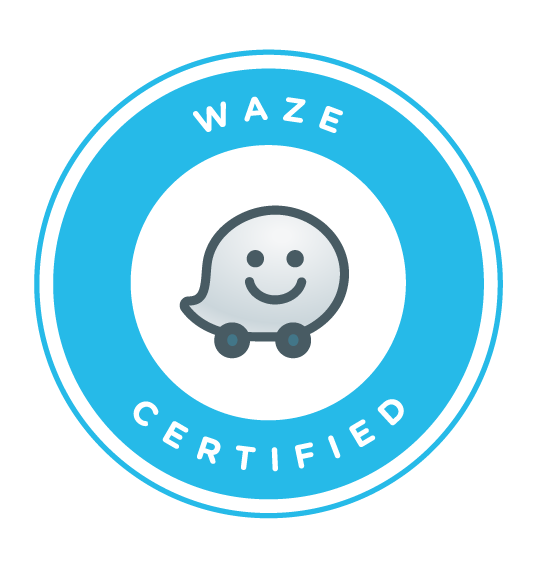
Online Monopoly
Many companies have a love hate relationship with the likes of Google and Facebook. On the one hand they offer access to vast opportunities and a wide ranging audience, on the the other that access sometimes comes with unfathomable restrictions.
Why are some companies able to grow Facebook “Likes” into the thousands whilst you struggle to get a few hundred?
Why are you not on page one of Google for “competitive search phrase” yet your competitor, with a seemingly less worthy site, is?
Achieving either of these goals has been discussed exhaustively not only on this site, but on many other platforms to. The methodology to achieve either contains tactics that are constantly in flux, as these behemoths of the online marketing world seemingly change their rules on a whim.
An open letter to Google
Recently, Mathias Dopfner, chief executive of Axel Springer, wrote an open letter to Google complaining of its monopoly. Suggesting that the company has dangerous strangle hold on companies:
“We also know of no alternative search engine which could maintain or increase our online reach.” he continues…
“This means, in plain language, that we – and many others – are dependent on Google. At the moment Google has a 91.2 percent search-engine market share in Germany.” This percentage is similar for many countries in Europe.
In answer to Google’s statement of “if you don’t like Google, you can remove yourself from their listings and go elsewhere” Mathias Dopfner compares the option as being, “about as realistic as recommending to an opponent of nuclear power that he just stop using electricity.”
He acknowledged this to the extent that his company has just come to an advertising agreement with the search giant. Citing that they have no real choice.
“We know of no alternative which could offer even partially comparable technological prerequisites for the automated marketing of advertising.”
Does business need to grow up?
Google and Facebook are private companies and, within the restrictions of the law, they are able to do as they wish. Anything that adversely affects their users will result in less revenue, so this helps keep them in check, to a point. Business has some serious growing up to do if they think they can get to access the audience that these companies command without effort or for very little budget.
The audience is “the product” in the eyes of Google and Facebook, and to access “the product” you have to pay! After all, you don’t give your services or products away for free do you?
Where this misconception comes from is the early adopter case studies. These are examples of businesses that were quick to see the potential in a new platform and whilst it was in the early stages of growth jumped on board and leveraged the growing audience. They were in early enough that as the platform and its audience grew, they grew with it. This often meant they got a free ride in return for their risk.
By the time the rules of the game had changed they had already benefited so much from the platforms growth that the strength of their position and the PR of being an example success helped them grow further.
Sure, they suffer too when the platforms adapt to a growing market, but by already being in such a strong position early on the adjustments required are generally not all that severe.
So what is the solution?
Waiting for government restriction or any monopolies commission is not really the answer. These companies have such strong lobbying powers it will be years , if not decades, before they cede control.
Not taking part is no choice either, due to the huge audience numbers involved.
The real solution is to earn your own audience.
Most businesses don’t need an audience of billions, millions or even thousands. In many cases a few hundred targeted potential customers are a big enough pool to draw new business from.
Your aim should be to become independent of these marketing platforms, give your audience a reason to visit you directly. Create an offering so compelling that they come back to read, listen or watch the content you produce regardless of your standing in search or your number of followers.
You know what happens when you do achieve this? Funnily enough your search positions strengthen and your followers grow naturally.
Delivering value is key
But you can only do this if you have some of value to offer your audience.
This is where content comes in to play. Look at all the companies that have made a success at any level on the platforms we have discussed and you will find they all produce their own content or are very good at curating quality 3rd party content.
Content creation is the real price to pay in growing an audience, not cost per click. With an ongoing content strategy in place and regular content production your audience has a reason to return, a reason to subscribe to your email list.
With the content hosted on your own site, you are in control, you decide what your audience sees, what is important and what is not.
A simple plan
To make this work for you you’ll need a few elements in place:
- Somewhere to host your content; your website or a blog you control
- An email list for visitors to subscribe to
- A content creation plan with a budget or resource set aside for content production
- A content distribution plan; where else can you publish to create awareness?
Initially you will also need to allow a budget for a Google Adwords, or Facebook Promoted posts, campaign to get your content noticed and short term promotion of your product or service. Once you have impetus you can reduce reliance on these paid channels.
No easy ride
If you were after an easy ride, in search or social, I am afraid to say those days are gone. You may still find an opportunity on another platform if you get in early enough, but no longer on an established one.
The only one sure way to grow independance from these online monopolies is to command an audience of your own. To do so means becoming a publisher rather than an advertiser.
An example: This article is an example of my content strategy. It took me an hour to write, prompted by the German newspaper report. It exists on my blog, will be sent in my email newsletter and also published via several social platforms as part of my distribution plan.
I still don’t produce content as often as I would like but it is supplemented with a solid content curation plan leveraging the leading social networks.
Let me know your thoughts via Twitter with regards the current situation with Google and Facebook.
If you would like help freeing your business from the marketing monopolies of Google and Facebook give us a call today on 01379 330330
[Photo Credit: John-Morgan]





